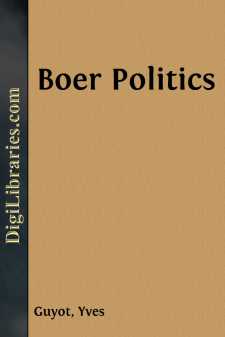Categories
- Antiques & Collectibles 13
- Architecture 36
- Art 48
- Bibles 22
- Biography & Autobiography 813
- Body, Mind & Spirit 142
- Business & Economics 28
- Children's Books 17
- Children's Fiction 14
- Computers 4
- Cooking 94
- Crafts & Hobbies 4
- Drama 346
- Education 46
- Family & Relationships 57
- Fiction 11829
- Games 19
- Gardening 17
- Health & Fitness 34
- History 1377
- House & Home 1
- Humor 147
- Juvenile Fiction 1873
- Juvenile Nonfiction 202
- Language Arts & Disciplines 88
- Law 16
- Literary Collections 686
- Literary Criticism 179
- Mathematics 13
- Medical 41
- Music 40
- Nature 179
- Non-Classifiable 1768
- Performing Arts 7
- Periodicals 1453
- Philosophy 64
- Photography 2
- Poetry 896
- Political Science 203
- Psychology 42
- Reference 154
- Religion 513
- Science 126
- Self-Help 84
- Social Science 81
- Sports & Recreation 34
- Study Aids 3
- Technology & Engineering 59
- Transportation 23
- Travel 463
- True Crime 29
Sort by:
INTRODUCTION Note. In citations from Shakespeare's plays and nondramatic poems the numbering has reference to the Globe edition, except in the case of this play, where the reference is to this edition. I. SOURCES No event in the history of the world has made a more profound impression upon the popular imagination than the assassination of Julius Cæsar. Apart from its overwhelming interest as a...
more...
by:
Gilbert Murray
PREFACE If I have turned aside from Euripides for a moment and attempted a translation of the great stage masterpiece of Sophocles, my excuse must be the fascination of this play, which has thrown its spell on me as on many other translators. Yet I may plead also that as a rule every diligent student of these great works can add something to the discoveries of his predecessors, and I think I have been...
more...
by:
Moliere
PROLOGUE. The front of the stage represents a rustic spot, while at the back the sea can be seen in the distance. SCENE I. Flora. appears in the centre of the stage, attended by Vertumnus, god of trees and fruit, and by Palemon, god of the streams. Each of these gods conducts a troup of divinities; one leads in his train Dryads and Sylvans, and the other River Gods and Naiads. Flora sings the...
more...
by:
Gail Hamilton
PART I Once there was a great noise in our house,—a thumping and battering and grating. It was my own self dragging my big trunk down from the garret. I did it myself because I wanted it done. If I had said, "Halicarnassus, will you fetch my trunk down?" he would have asked me what trunk? and what did I want of it? and would not the other one be better? and couldn't I wait till after...
more...
A few words of introduction to this striking story of life in Szeklerland may not be out of place. The events narrated are supposed to take place half a century ago, in the stirring days of '48, when the spirit of resistance to arbitrary rule swept over Europe, and nowhere called forth deeds of higher heroism than in Hungary. To understand the hostility between the Magyars and Szeklers on the one...
more...
CHAPTER I WHY VROUW BOTMAR TELLS HER TALE It is a strange thing that I, an old Boer vrouw, should even think of beginning to write a book when there are such numbers already in the world, most of them worthless, and many of the rest a scandal and offence in the face of the Lord. Notably is this so in the case of those called novels, which are stiff as mealie-pap with lies that fill the heads of silly...
more...
CHAPTER I. Convention of London, February 27, 1884. A Convention Between Her Majesty the Queen of the United Kingdom of Great Britain and Ireland and the South African Republic. Whereas, The Government of the Transvaal State, through its Delegates, consisting of Stephanus Johannes Paulus Kruger, President of the said State, Stephanus Jacobus Du Toit, Superintendent of Education, and Nicholas Jacobus...
more...
by:
Yves Guyot
INTRODUCTION. A word in explanation of this English edition is perhaps not unnecessary. It will be remembered that the arguments in the following pages appeared originally in the columns of Le Siècle, and from the correspondence between M. Yves Guyot and Dr. Kuyper and M. Brunetière (Appendix B), the reader will understand how the publication of Le Siècle articles in pamphlet form arose. In the...
more...
CHAPTER I. The Man Who Caught The Vision Inland America, at the birth of the Republic, was as great a mystery to the average dweller on the Atlantic seaboard as the elephant was to the blind men of Hindustan. The reports of those who had penetrated this wilderness—of those who had seen the barren ranges of the Alleghanies, the fertile uplands of the Unakas, the luxuriant blue-grass regions, the rich...
more...
INTRODUCTION The ranks of those illustrious men who a few decades ago, in war and peace, stood by the side of Emperor Wilhelm I.—of glorious memory—have gradually thinned. On the 9th of November, 1896, another of the few then surviving—Dr. Emil Frommel, Supreme Councillor of the Prussian Consistory, formerly chaplain to the Imperial Court and pastor of the “Garnisonkirche” in Berlin—closed...
more...











